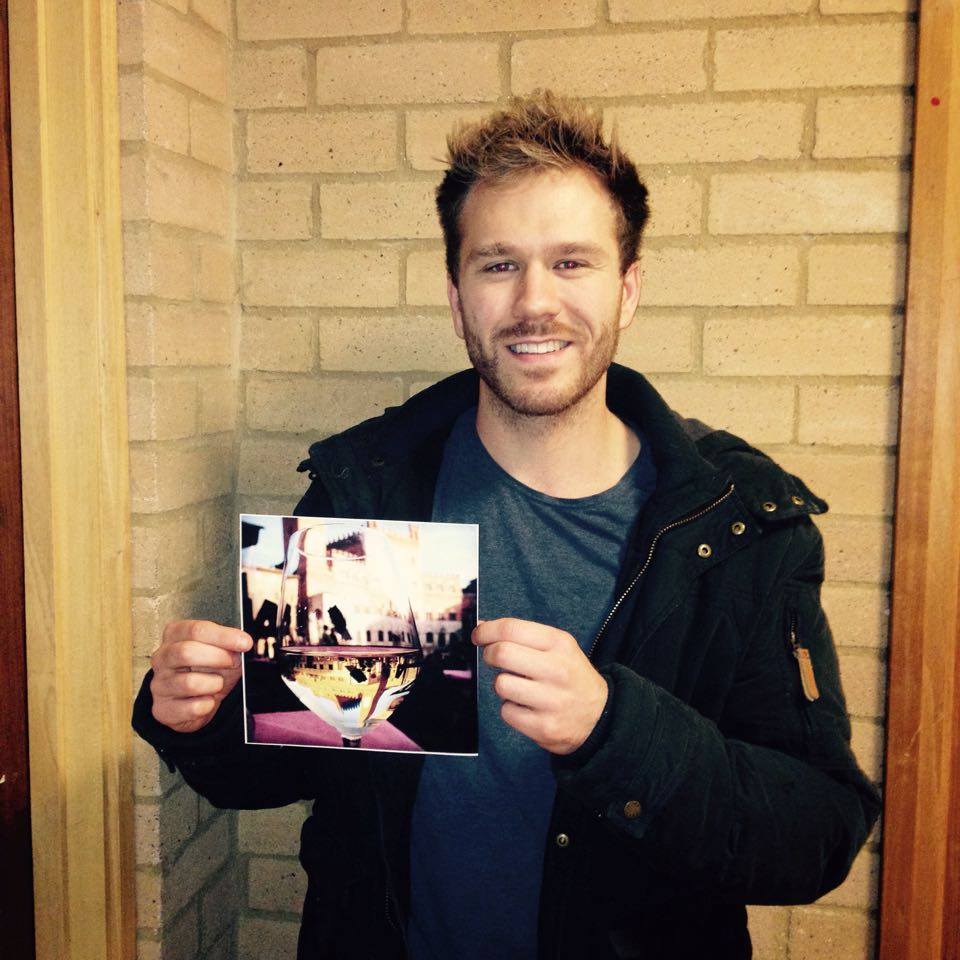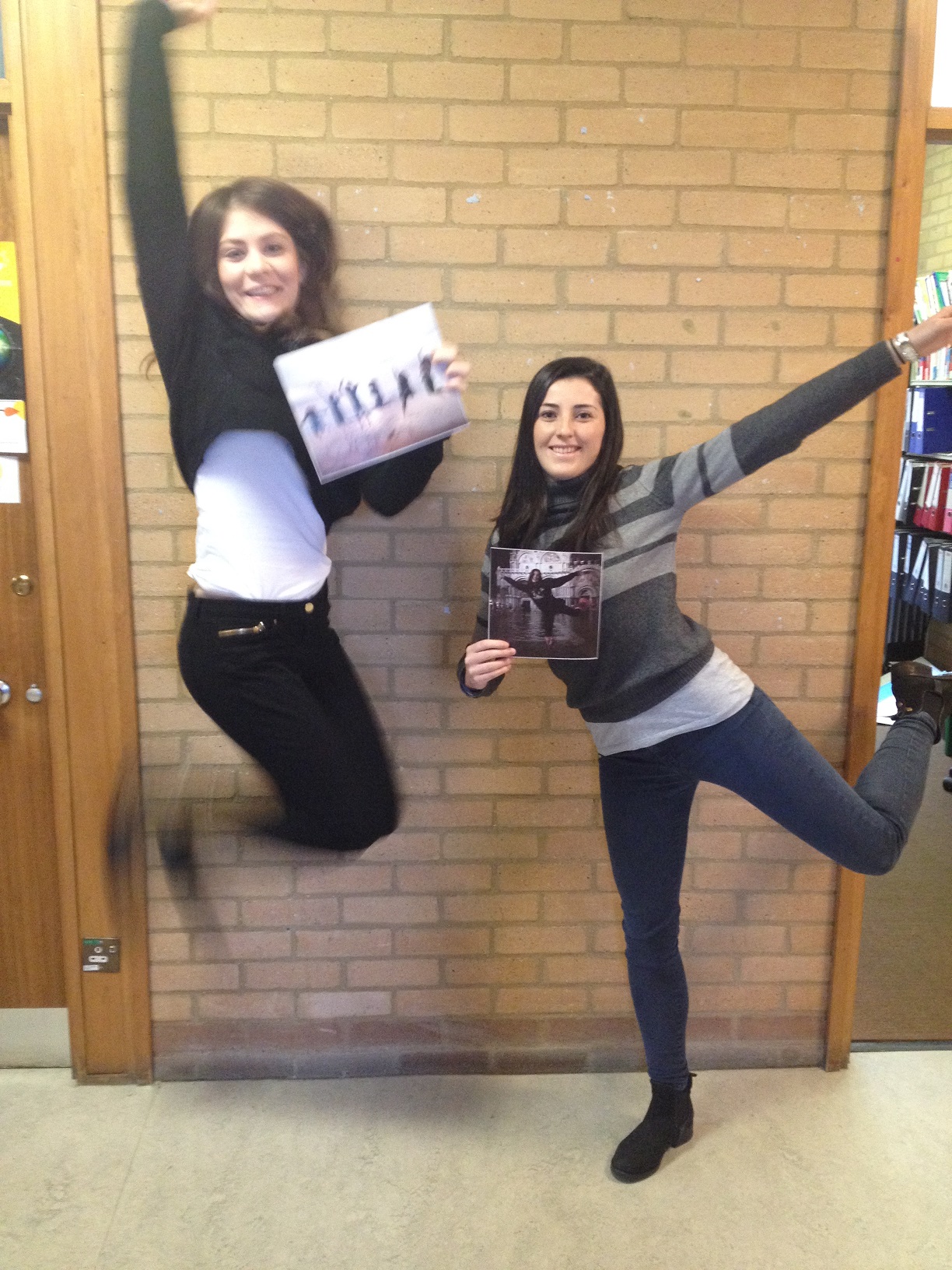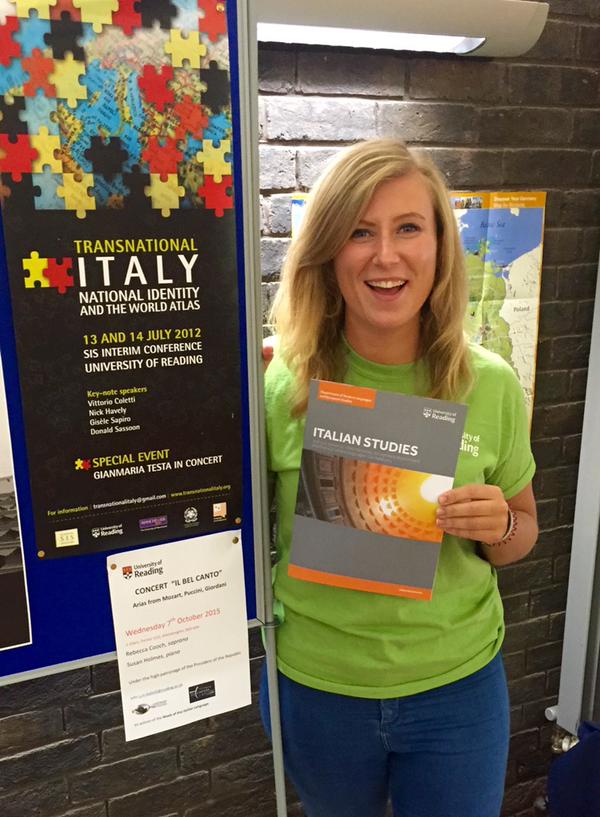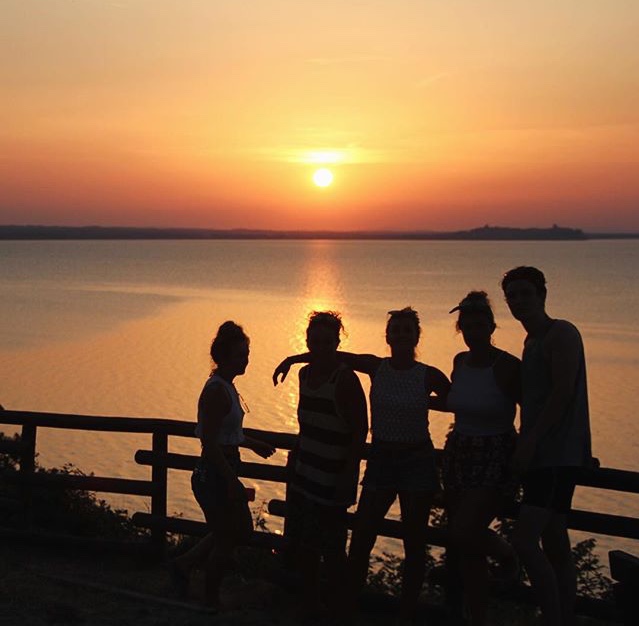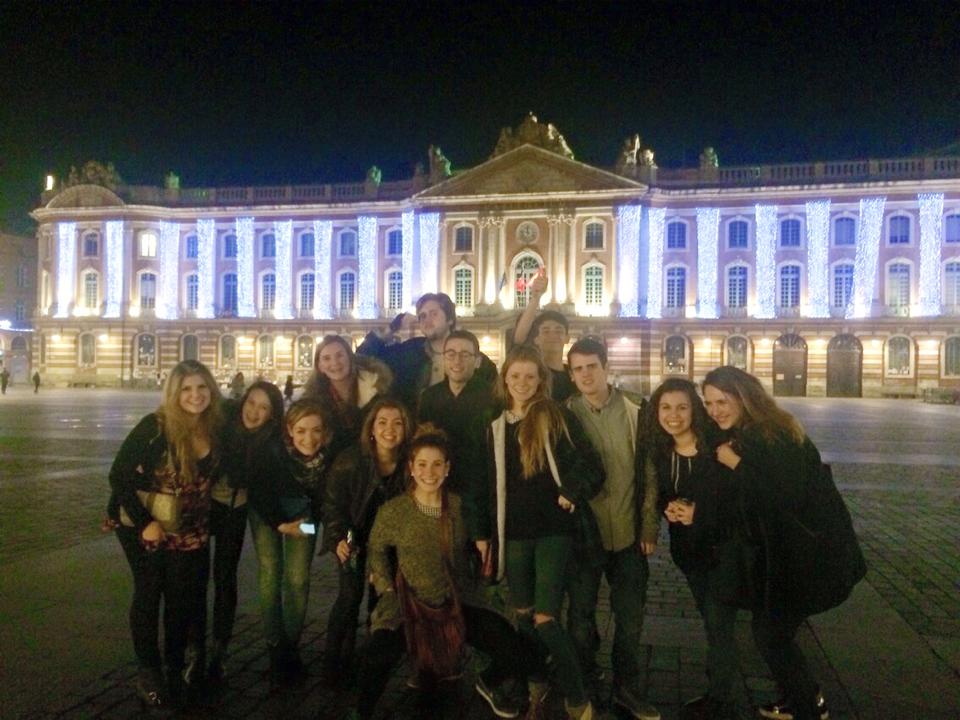Today, second-year students in the Department of Modern Languages and European Studies have their introductory meeting about the year abroad. As they begin to consider the opportunities available to them next year, when they’ll head off to work, study, and teach overseas, we thought we’d ask the students who have recently returned from their time abroad to share with us some reflections on the experience. Here’s a reflection from Emily Skew, a joint-honours student of French and Italian, who spent 2013/14 in Grenoble, France and Venice, Italy.
 For the Italian half of the year, my top choices were Florence, Rome and Pisa. This was mainly because these were the only Italian cities I’d ever been to and I knew I had liked them. When the time came for allocating cities, I found out I was going to Venice. In all honesty, when I found out, I wasn’t very excited! I had a fear of boats and the only mode of transport there is by boat! But I came to terms with having to go there and after completing my first 5 months of third year in France, it was time to move to Venice.
For the Italian half of the year, my top choices were Florence, Rome and Pisa. This was mainly because these were the only Italian cities I’d ever been to and I knew I had liked them. When the time came for allocating cities, I found out I was going to Venice. In all honesty, when I found out, I wasn’t very excited! I had a fear of boats and the only mode of transport there is by boat! But I came to terms with having to go there and after completing my first 5 months of third year in France, it was time to move to Venice.
It was the end of January and I was extremely nervous; I was a ball of nerves on the plane journey and was constantly worrying. That was until we came into land at Venice Marco Polo airport. The airport is very close to the island, just on the edge of the mainland in fact, so on the final descent if you look to the right hand side of the plane you get the most amazing view of the whole island. It was such a clear day and it was the first time I’d seen the island; it looked so pretty and intriguing, and it was the first time I had gotten excited  about what was to come. Once on the island I was completely blown away: the architecture was incredible and it was the most beautiful place I had ever seen. For the first week I wasn’t too busy so I walked around each day, first seeing the main attractions and being a tourist with my camera and then getting lost, finding hidden corners around the island. I was not scared of wandering around on my own in the day, it felt completely safe and, in fact, I later found out that Venice has one of the lowest crime rates in Italy! I also wasn’t scared of getting lost, because the island is so small that even if you do get lost, eventually you will end up somewhere you recognise. There are also lots of signs on the tops of calles (streets) with directions to the most iconic places, such as Piazza San Marco or the Rialto bridge.
about what was to come. Once on the island I was completely blown away: the architecture was incredible and it was the most beautiful place I had ever seen. For the first week I wasn’t too busy so I walked around each day, first seeing the main attractions and being a tourist with my camera and then getting lost, finding hidden corners around the island. I was not scared of wandering around on my own in the day, it felt completely safe and, in fact, I later found out that Venice has one of the lowest crime rates in Italy! I also wasn’t scared of getting lost, because the island is so small that even if you do get lost, eventually you will end up somewhere you recognise. There are also lots of signs on the tops of calles (streets) with directions to the most iconic places, such as Piazza San Marco or the Rialto bridge.
Once it was time to begin our studies at Ca’ Foscari University of Venice, we had a welcome day which included tours of the university buildings, which are scattered around the island, and a welcome party with the chance to meet other Erasmus students. The International Erasmus office at the University were so helpful throughout my stay, and the lectures and exams were also very well organised. It was a nice surprise and a worry off my mind!
When I wasn’t studying, I spent my time finding out about the city and the culture! The first was the Acqua Alta, which is when the whole island floods due to the high tides. It’s amazing to see how the whole island continues to function even when the water levels can reach up to a metre. You will see the locals wading through in their wellies (luckily my Italian flatmates had a spare pair for me to use) and each night when acqua alta is forecast, the locals will help each other to erect wooden walkways around the busiest 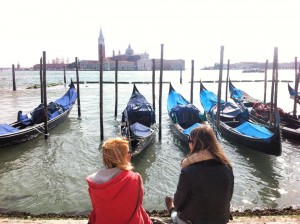 parts of the city. There were some great days and nights spent in Piazza San Marco splashing around in the water and taking photos.
parts of the city. There were some great days and nights spent in Piazza San Marco splashing around in the water and taking photos.
One thing I loved about Italy was the food! It was especially good in Venice due to the fresh fish and there were incredible restaurants on nearly every street. It wasn’t just the restaurants that caught my attention; all over Venice you will find small bars tucked away in the small back streets, which the locals liked to frequent and here you will find a Venetian tradition of cicchetti (small finger food) and a few umbra (tiny glasses of house wine for roughly a euro). These places are great for a quick lunch or making a long evening of drinking and picking through some of the cicchetti.
Another favourite of the Venetian students is to hang out with friends in one of the many bars in Campo Santa Margherita, a small square near to the University, which is great for people watching and sipping espresso during the day and having a few spritz in the evenings. A spritz is another Venetian speciality: a mix of soda, Prosecco and a bitter, either Aperol, Campari or other less well known varieties. The square is buzzing with activity in the summer evenings and it is great for socialising with the Italians and practicing your language – especially with the help of a drink to give a confidence boost! In this square you will also find a small pizza shop called ‘Pizza al volo’ where you can buy a slice of a very large pizza for just 2€! It’s always busy and is one of the best pizzas I’ve ever had. You will also find a popular ice cream shop called ‘Il Doge’ which some argue sells the best ice cream in all of Venice, but in my opinion, the best ice cream is to be found in Sottoportego de la Bissa, just off of Campo San Bartolomeo, in a small shop called ‘Suso’. They do some amazing flavours such as speculoos biscuit, pistachio with a chocolate ganache and my favourite, Opéra, which is vanilla with a hazelnut chocolate ganache on top.
Venice has a great transport system; the trains are so easy to get to and the vaporetti (water buses) run all night and as often as every 5-10 minutes  during the busy parts of the day. There are even lots of vaporetti lines going to the different islands around Venice, one of my favourites being Burano, a tiny fishing island where every house is painted a different bright colour! It looks like something from a postcard. Another island which is great to visit is the Lido. Here you’ll find the beach with its soft sands and blue waters. I spent many a day there in the summer relaxing and having picnics with friends.
during the busy parts of the day. There are even lots of vaporetti lines going to the different islands around Venice, one of my favourites being Burano, a tiny fishing island where every house is painted a different bright colour! It looks like something from a postcard. Another island which is great to visit is the Lido. Here you’ll find the beach with its soft sands and blue waters. I spent many a day there in the summer relaxing and having picnics with friends.
One of the main things I loved about Venice was how everything was in close proximity. Coming from a small village where the closest town is 20 minutes’ drive away, being so close to University and friends was great. The island of Venice is so small but in fact, because everything is so squashed together, it still feels like a normal sized city, with tonnes to do and a beautiful scene around every corner.
I would really recommend anyone with the option of Venice for a year abroad to go there because it ended up being the best five months of my life where I met so many amazing people and saw so many beautiful places!
 Hello, my name is Zara Alnaimi and I spent my year abroad in Angoulême, SW France, working as an English assistant in two primary schools. The town of Angoulême is relatively small although it is famous for La Bande Dessinée (BD) and is home to the celebrated BD festival which takes place every year. During my year abroad, I was living in accommodation with other assistants from all over the world. Although English was our common language, we tried to speak French as much as we could and regularly went to restaurants and the cinema to watch French films. We also enjoyed experiencing French life and eating as much cheese and bread as we could! On the weekends, we usually traveled around South West France to places such as Bordeaux, La Rochelle and Poitiers. The photograph I submitted for the year abroad competition was from a lovely day on the beach at La Rochelle. A particular highlight for me was hiring a car in France so we could all visit Bordeaux, and driving on the French motorway which was scary but enjoyable! As expected, I met many French people whilst I was abroad and this really improved my language skills.
Hello, my name is Zara Alnaimi and I spent my year abroad in Angoulême, SW France, working as an English assistant in two primary schools. The town of Angoulême is relatively small although it is famous for La Bande Dessinée (BD) and is home to the celebrated BD festival which takes place every year. During my year abroad, I was living in accommodation with other assistants from all over the world. Although English was our common language, we tried to speak French as much as we could and regularly went to restaurants and the cinema to watch French films. We also enjoyed experiencing French life and eating as much cheese and bread as we could! On the weekends, we usually traveled around South West France to places such as Bordeaux, La Rochelle and Poitiers. The photograph I submitted for the year abroad competition was from a lovely day on the beach at La Rochelle. A particular highlight for me was hiring a car in France so we could all visit Bordeaux, and driving on the French motorway which was scary but enjoyable! As expected, I met many French people whilst I was abroad and this really improved my language skills.



